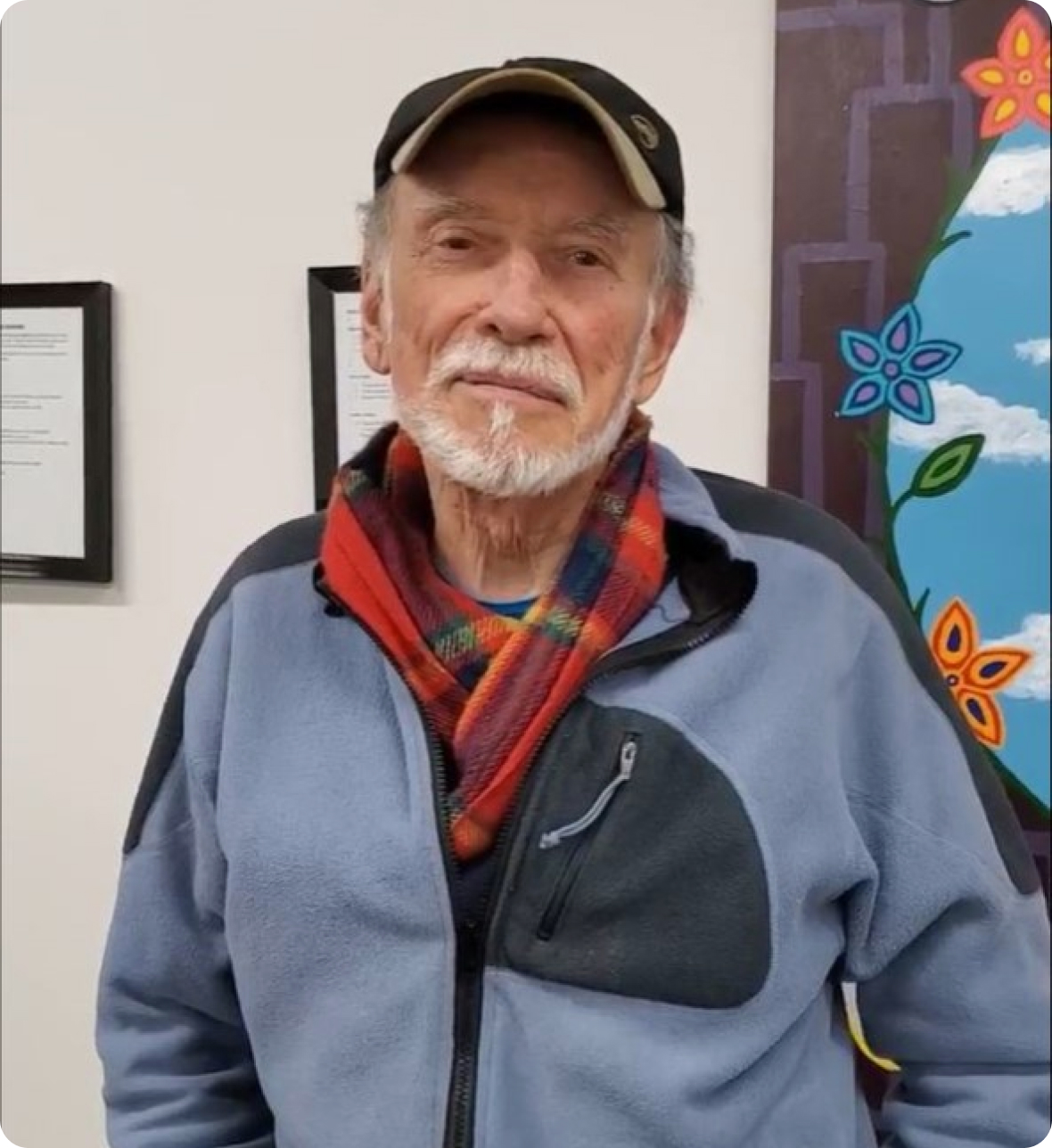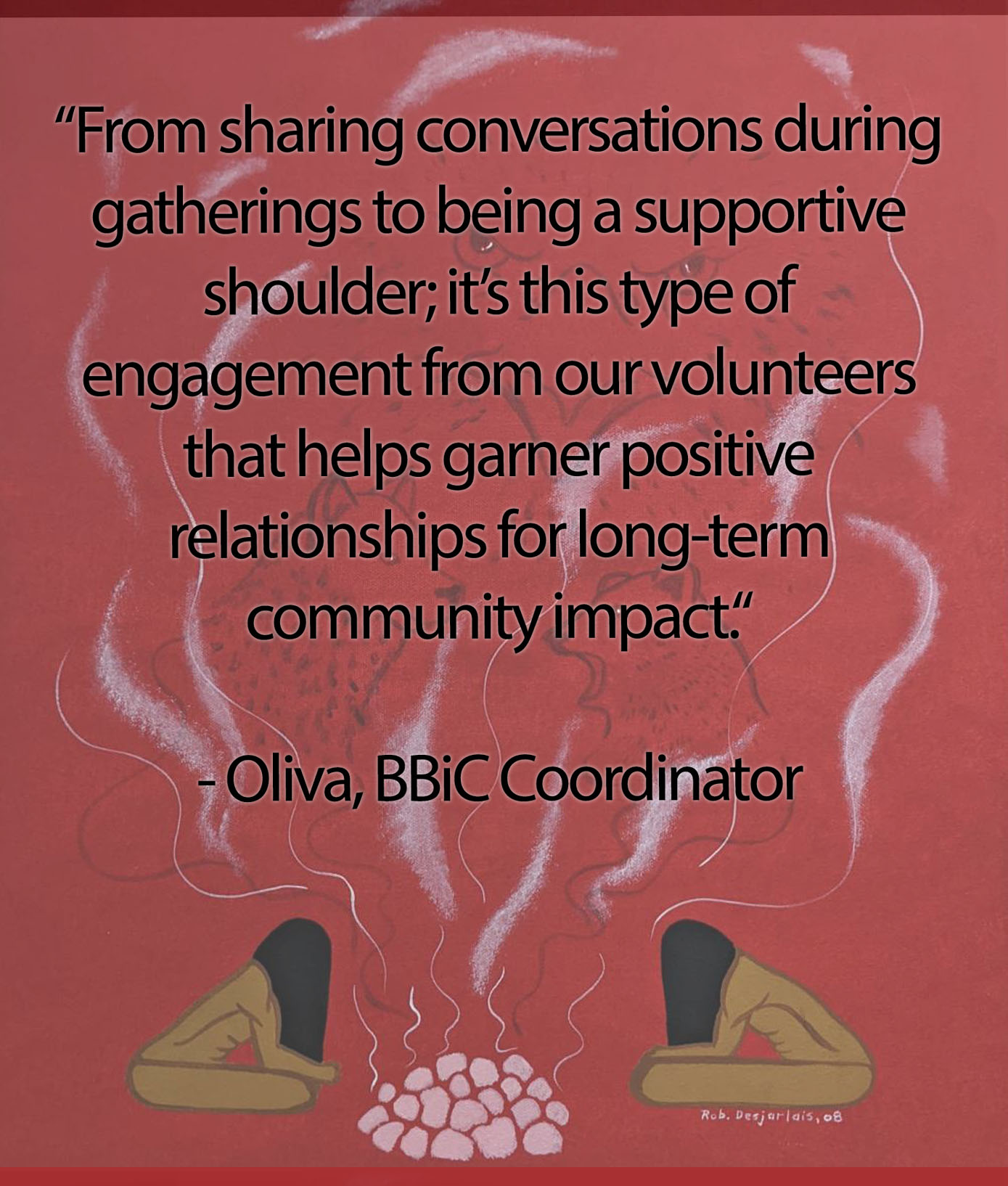At CJHS, our staff and volunteers foster an inclusive agency whose purpose is to promote positive change and support crime prevention through restorative practices.
Volunteers enhance our work, allowing us to meet our mission, by bringing their skills and community perspective to our agency.


Gord Cook is an exceptional individual who has dedicated over 30 years as a tireless advocate and volunteer for those impacted by the criminal justice system. Through his empathy, knowledge, and unwavering dedication, he has helped countless people overcome the barriers posed by criminal records, opening doors to employment, education, and international travel opportunities.
Gord’s impact extends far beyond individual assistance. He has been a powerful voice for systemic change, consistently advocating for the revision of the record suspension process and associated costs. Additionally, he has advocated for alternative approaches to addressing minor offenses, youth incarceration, and wrongful convictions.
Gord’s commitment to this work is truly inspiring, and his impact on the community is immeasurable. He is a well-deserving recipient of the June Lindgren Award for his exceptional volunteer service.
“Volunteers bring a whole new level of support to the individuals we work with. There is something about having someone who is not being paid, but still willing to support the individual that creates a profound impact and sense of worth.”
“Volunteers are our link to the community. From volunteer Board Members to prison visitations, they all bring the community's perspectives to us, and share our work with the community in turn.”
“Volunteers are an additional resource for many of the programs and expand the capacity to provide better supports and services to the folks we serve. They can bring new ideas and perspectives and can build positive relationship within CJHS and other community members”
21
17
13
10
9
7
2

Bridges to Community (B2C) is a program where volunteers visit the Drumheller Institution to engage one-on-one with inmates who request visits. These interactions provide inmates with meaningful connections to the outside world and the opportunity to build relationships that extend beyond their time within the correctional system.
It is always heartwarming to hear from both volunteers and inmates about the profound impact these relationships have on both sides. Inmates express deep gratitude for the visits, which offer a chance to relax and enjoy a friendly cup of coffee—an experience that, while simple, can be incredibly humanizing for those who are otherwise denied such pleasures. Volunteers often reflect on the deeply meaningful connections they form.
The Director of Programming (DOP) at Drumheller Institution shared a story about the Volunteer Coordinator, Gordon Hutchinson, who has been facilitating these meetings for years. The DOP recounted an incident where an inmate became increasingly agitated and volatile, prompting correctional officers to prepare for intervention. Gordon, who was nearby, approached the situation calmly and, using a reassuring tone, successfully de-escalated the inmate’s behavior.
Building on this story, the DOP highlighted how highly valued and respected Gordon is within the institution and remarked on the significant difference she believes he and the volunteers are making. This story underscores the importance of the relationships that Gordon and the volunteers establish with inmates, demonstrating the profound impact that mutual respect and human connection can have in such challenging environments.

Sam, a 59-year-old man, has faced significant challenges in his life, including an abusive upbringing and childhood trauma. Struggling with a learning disability and mental health issues, he turned to heavy drinking and crime, resulting in lost trust from his family and isolation.
In 2008, a parole officer recognized his need for help and referred him to the Circles of Support and Accountability (COSA) program. When COSA ended, Sam continued with Building Bonds in the Community (BBIC), marking a turning point in his life. With BBIC’s ongoing support of dedicated volunteers, he found a positive outlet and a sense of belonging.
Since joining BBIC, Sam has made remarkable strides. He secured a stable job in 2008 and proudly celebrates 16 years of sobriety—a milestone he attributes to the program. “I have three families; BBIC, work, and my family,” he says, highlighting the profound impact of community support.
BBIC has equipped Sam with essential life skills, such as managing a bank account and finding stable housing. His family, once distrustful, are now engaged as natural supports. They see the positive changes in Sam and recognize that BBIC played a vital role in his journey.
Emotional support has been crucial during difficult times. When faced with the trauma of his cousin’s suicide, BBIC’s volunteer members provided companionship and understanding, helping him cope. “I am so glad I had the group,” he reflects.
Sam’s story exemplifies the transformative power of community support in crime prevention. He acknowledges that without BBIC, he might have fallen back into old habits. “If I wouldn’t have had this group, I don’t know what I would do. Probably get in trouble,” he admits.
Through BBIC, Sam is no longer on parole. He has rebuilt his life and developed a family-like network, demonstrating that creative solutions to crime prevention can lead to meaningful change and reintegration into society.

In 2023, one of the financial coaches from the housing program reached out to a tax volunteer to have taxes completed for 2 of their clients. This tax volunteer expressed interest in working more with the agency to support tax filing for our clients. They agreed to become a volunteer with the agency to provide on-site tax filing services for CJHS clients.